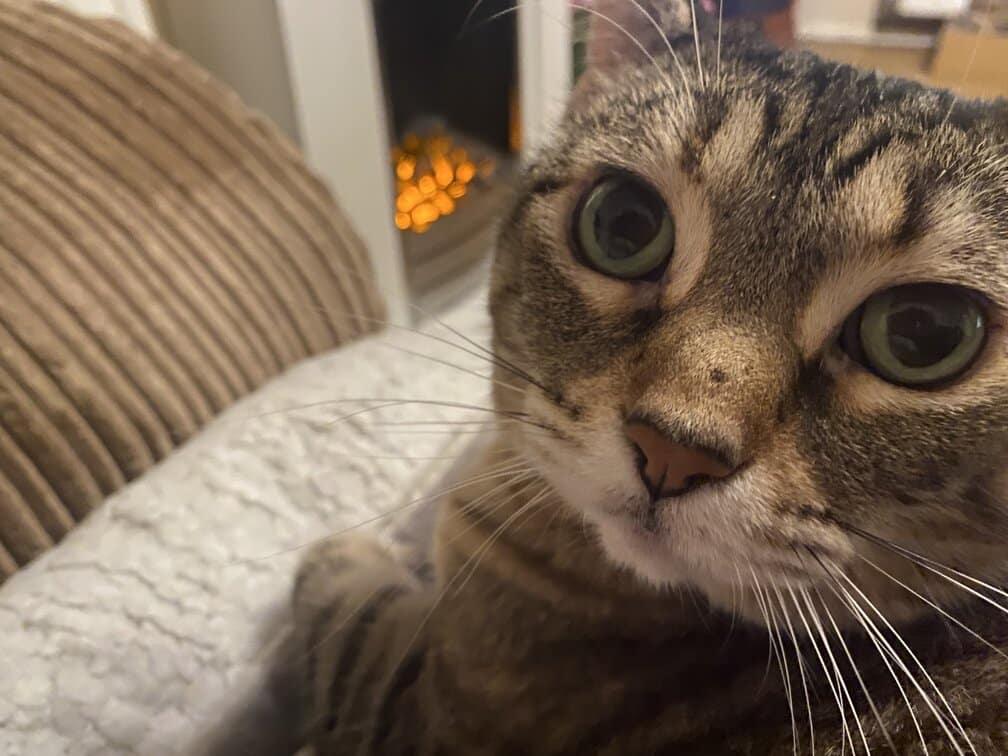
I remember watching the news with some curiosity, and a sense of impending change. “Hold on to your socks,” someone said, “this is going to be big.”China had just implemented a nationwide lockdown over a rapidly spreading virus. We all now know how this would irrevocably change our lives over the coming years, full of twists and turns and just plain change. So. Much. Change. Cats, too, had a life-changing experience as a species, gleaning from the virus a life-saving treatment for a previously uniformly fatal disease, but that is a topic for another day.Many stories grew out of the pandemic- veterinary medicine and life within the profession was no exception. We still went into the clinic, when most everyone stayed home. The face of the veterinary profession changed overnight, something as a profession we are generally slow to do, so this was eye opening.Telehealth with cats and dogs suddenly became acceptable let alone commonplace, cats came in for visits but no owners were allowed into clinics so “curbside service” became a new buzzword, clinic hours were shortened, and the world outside became still, peaceful, ghostlike. The roads were empty. Parking lots abandoned. Most everyone else was working from home.But for cats like Pancake, it simply meant I was home a bit more, and maybe there was an extra feeding to be had?I’ve always found a sense of serenity in the presence of a cat. They embody peace. They sleep like I wish I could: easily, at any time or place, in the most uncomfortable positions, all with ease. Similarly they’ve worked themselves into some amazing environs as a species: at the base of the Great Wall of China, cats loiter.In the temples of Thailand, cats fastidiously clean their unspeakables in front of shimmering gold Buddhas and attending Buddha worshipers. They live in some of the most arid regions of West Australia, and pandemic? What pandemic? For them, life goes on.But for humans, the pandemic taught us a lot about ourselves- how do we handle struggles, and how do we learn to be kind to ourselves, when we’ve spent our lives primarily learning to be kind to others, at our own expense? Mental health became a hot topic, as we tried to answer this question.So what exactly is mental health? One accepted definition of mental health is that it encompasses our emotional, psychological, and social well-being. It impacts our thoughts, actions, and feelings, and determines how we react. It involves every stage of our life- from childhood to death.To me, I see mental health as the image of a cat in front of a warm fireplace on a winter’s eve. It’s stopping, recharging, living in the moment. They say happiness comes from living in the present, and unhappiness from living in the future or the past. Cats are masters of this.Pancake moreso than most. Currently asleep on the bed with Tiller, both well into a late morning nap (now progressing into late afternoon as I write): they have, after all, slept all night and most of the preceding day, but awoke at 4 am to religiously check the automatic feeder every 15 minutes until it opened and a new day’s food spilled out. Hence, they are exhausted.But another interesting side to mental health has recently arisen: the reciprocal nature of cats, or any pets for that matter, on human mental health. The term is zooeyia.Zooeyia is derived from Greek for animal (zoion) and the Greek Goddess of health (Hygeia). It incorporates the positive health benefits that humans derive from their interactions with animals. Research suggests that entire national health economies are positively impacted by pet ownership to the tune of millions of dollars saved in healthcare outlay, and the actual physical health benefits have been studied and postulated for decades.On a personal level, it’s easy to see. After a long week, when Saturday night rolls around, I’m happy to be at home with the cats. This past weekend, for example, I built a cat feeding puzzle toy out of a used present wrapping paper roll. It was the largest version of this particular treat puzzle ever recorded in the history of homemade treat puzzles (IMHO), and it kept the cats (ok, mostly me) entertained for about two hours! In the end, we had a cheap night in. And, I think the cats were happy. If nothing else, they had some Dreamies.In the end, maybe mental health is the simple things in life. Maybe the crux of it all is that laughter, and a cat, and taking the time to live in the moment are fine definitions of mental health. Though of course, a Dreamie or two never hurts.






